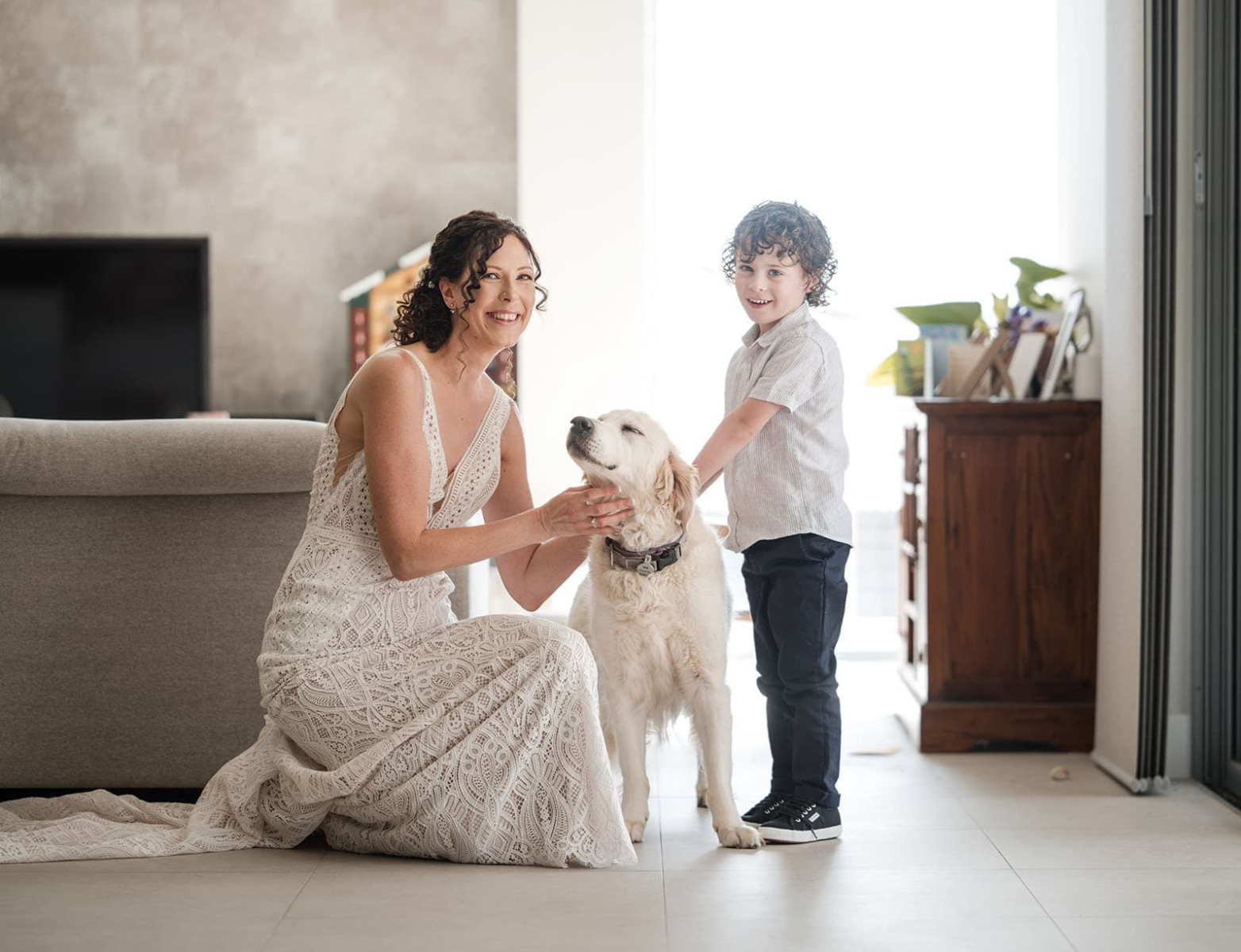Child-free weddings have become increasingly popular in recent years, with more couples opting to exclude children from their special day. This trend can be attributed to a variety of factors, including the desire for a more sophisticated and adult-focused event, concerns about potential disruptions or distractions, and the desire to create a more intimate and formal atmosphere. While the decision to have a child-free wedding is a personal one, it is important for couples to consider the etiquette surrounding this choice and how to effectively communicate their wishes to guests.
The Etiquette of Child-Free Weddings: What You Need to Know Before Making the Decision
When it comes to child-free weddings, there are certain etiquette guidelines that couples should be aware of before making the decision. Firstly, it is important to remember that it is ultimately the couple’s choice whether or not to invite children to their wedding. While some guests may be disappointed or even offended by this decision, it is important to remember that it is your special day and you have the right to celebrate it in the way that feels most comfortable to you.
One common reason why couples choose to have a child-free wedding is to create a more sophisticated and adult-focused atmosphere. Weddings are often seen as a time for adults to relax, socialize, and enjoy themselves, and some couples feel that the presence of children may detract from this experience. Additionally, there may be concerns about potential disruptions or distractions that children could cause during the ceremony or reception. By excluding children from the guest list, couples can ensure that their wedding remains focused on the celebration of their love and commitment.
Communicating Your Child-Free Wedding Wishes: Tips for Avoiding Misunderstandings
When it comes to communicating your child-free wedding wishes to guests, it is important to do so in a clear and respectful manner. One way to do this is by carefully wording your invitations. Instead of explicitly stating that children are not invited, you can use phrases such as “adults-only affair” or “we kindly request the presence of adults only.” This allows you to convey your wishes without sounding rude or exclusionary.
It is also important to be prepared for questions or pushback from guests who may not agree with your decision. Some guests may feel offended or upset by the exclusion of their children, and it is important to handle these situations with grace and understanding. Be prepared to explain your reasons for having a child-free wedding, and emphasize that it is not a reflection of how you feel about their children, but rather a decision based on the overall atmosphere and tone you wish to create for your special day.
Crafting the Perfect Invitation: How to Clearly Indicate That Children are Not Invited
Crafting the perfect invitation is crucial when it comes to clearly indicating that children are not invited to your wedding. The wording should be clear and concise, while still maintaining a polite and respectful tone. Instead of using phrases such as “no children allowed” or “adults only,” which can come across as harsh or exclusionary, opt for more subtle wording that conveys your wishes in a more tactful manner.
For example, you can use phrases such as “we kindly request the presence of adults only” or “we are creating an intimate and adult-focused celebration.” These phrases convey your wishes without sounding rude or offensive. Additionally, you can consider using a separate RSVP card specifically for guests with children, indicating that their children are not invited. This can help to avoid any confusion or misunderstandings.
Preparing for Pushback: How to Handle Guests Who Disagree with Your Decision
It is important to be prepared for pushback from guests who may disagree with your decision to have a child-free wedding. Some guests may feel offended or upset by the exclusion of their children, and it is important to handle these situations with grace and understanding. Remember that it is your special day, and while it is important to consider the feelings of your guests, ultimately the decision is yours to make.
When faced with pushback, it is important to remain calm and composed. Listen to the concerns of your guests and try to understand their perspective. Explain your reasons for having a child-free wedding, emphasizing that it is not a reflection of how you feel about their children, but rather a decision based on the overall atmosphere and tone you wish to create for your special day. It may also be helpful to offer alternative childcare options, such as hiring a babysitter or providing a separate kids’ area, to help alleviate any concerns.
Providing Alternative Childcare Options: How to Help Guests with Children Attend Your Wedding
While it is your decision to have a child-free wedding, it is important to consider the needs and concerns of your guests with children. Providing alternative childcare options can help to ensure that these guests are still able to attend your wedding and enjoy themselves. One option is to hire a professional babysitter or childcare service to provide on-site childcare during the ceremony and reception. This allows parents to attend the wedding while knowing that their children are being well taken care of.
Another option is to provide a separate kids’ area at the wedding venue. This can be a designated space where children can play and be entertained, while still being supervised by their parents or a hired babysitter. This allows parents to keep an eye on their children while still being able to participate in the wedding festivities. Providing alternative childcare options shows that you value the presence of your guests with children and want to make their experience as enjoyable as possible.
Setting the Tone: How to Create a Child-Free Environment at Your Wedding
Creating a child-free environment at your wedding requires clear communication and setting expectations with your guests. It is important to clearly convey your wishes in advance, so that guests are aware of the child-free policy and can plan accordingly. This can be done through the wording of your invitations, as well as through any additional information or details provided on your wedding website or in pre-wedding communications.
On the day of the wedding, it is important to have a designated point person or coordinator who can help enforce the child-free policy. This person can discreetly and politely remind guests who may have brought their children that the wedding is adults-only. It is also a good idea to have a separate area or room where parents can take their children if they need a break or if they become restless during the ceremony or reception.

Handling Last-Minute Requests: How to Politely Turn Down Late RSVPs with Children
It is not uncommon to receive last-minute requests from guests who want to bring their children to your child-free wedding. While it can be difficult to turn down these requests, it is important to stick to your decision and politely explain that the wedding is adults-only. It is important to remember that it is your special day, and you have the right to celebrate it in the way that feels most comfortable to you.
When responding to these requests, it is important to be firm but polite. Explain that the wedding is adults-only and that you hope they understand and respect your decision. It may also be helpful to offer alternative childcare options, such as providing a list of local babysitters or suggesting nearby childcare facilities. This shows that you value their presence at your wedding, but also reinforces your child-free policy.
Celebrating with Children Afterwards: How to Include Kids in Post-Wedding Celebrations
While your wedding may be child-free, it is still important to include children in the post-wedding celebrations. This can be done by hosting a family-friendly brunch or a separate kids’ party. These events can be held the day after the wedding and can include activities and entertainment specifically tailored for children. This allows children to be a part of the celebration and gives them an opportunity to have fun and enjoy themselves.
Including children in post-wedding celebrations also shows that you value their presence and want to celebrate with them in a way that is appropriate and enjoyable for everyone. It allows parents to attend the wedding and enjoy themselves, knowing that their children will have a chance to be included in the festivities as well.
Remembering the Big Picture: Why It’s Important to Stick to Your Child-Free Wedding Decision
While it can be difficult to stick to your child-free wedding decision, it is important to remember the big picture and why you made this choice in the first place. Having a child-free wedding allows you to create a more sophisticated and adult-focused atmosphere, and it can help to ensure that your wedding remains focused on the celebration of your love and commitment.
It is also important to remember that it is your special day, and you have the right to celebrate it in the way that feels most comfortable to you. While some guests may be disappointed or even offended by the exclusion of their children, it is important to remember that this decision is not a reflection of how you feel about their children, but rather a decision based on the overall atmosphere and tone you wish to create for your special day.
In conclusion, child-free weddings have become increasingly popular in recent years, with more couples opting to exclude children from their special day. While the decision to have a child-free wedding is a personal one, it is important for couples to consider the etiquette surrounding this choice and how to effectively communicate their wishes to guests. By following the tips and guidelines outlined in this article, couples can navigate the process of planning a child-free wedding with grace and understanding, ensuring that their special day is everything they envisioned.



